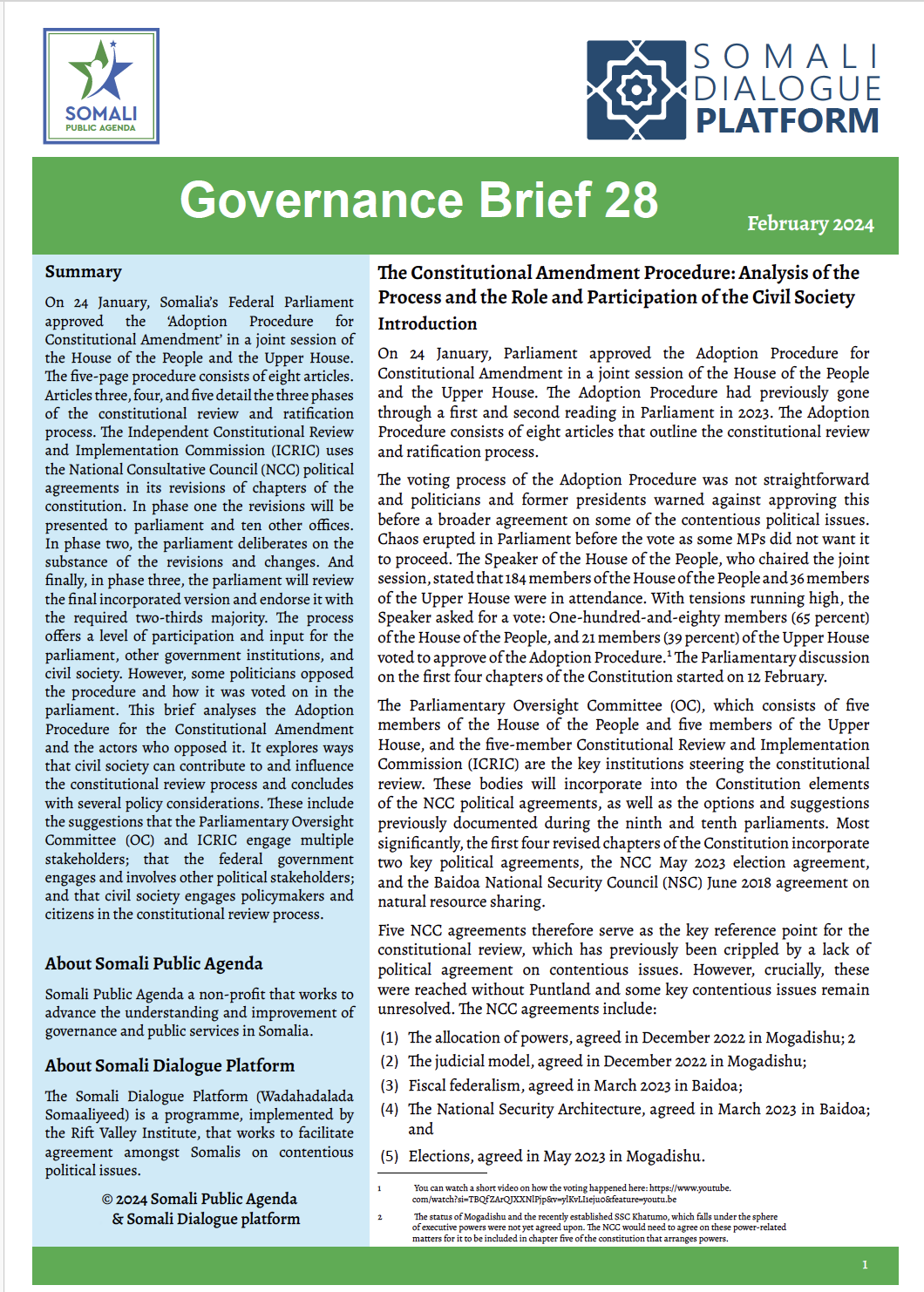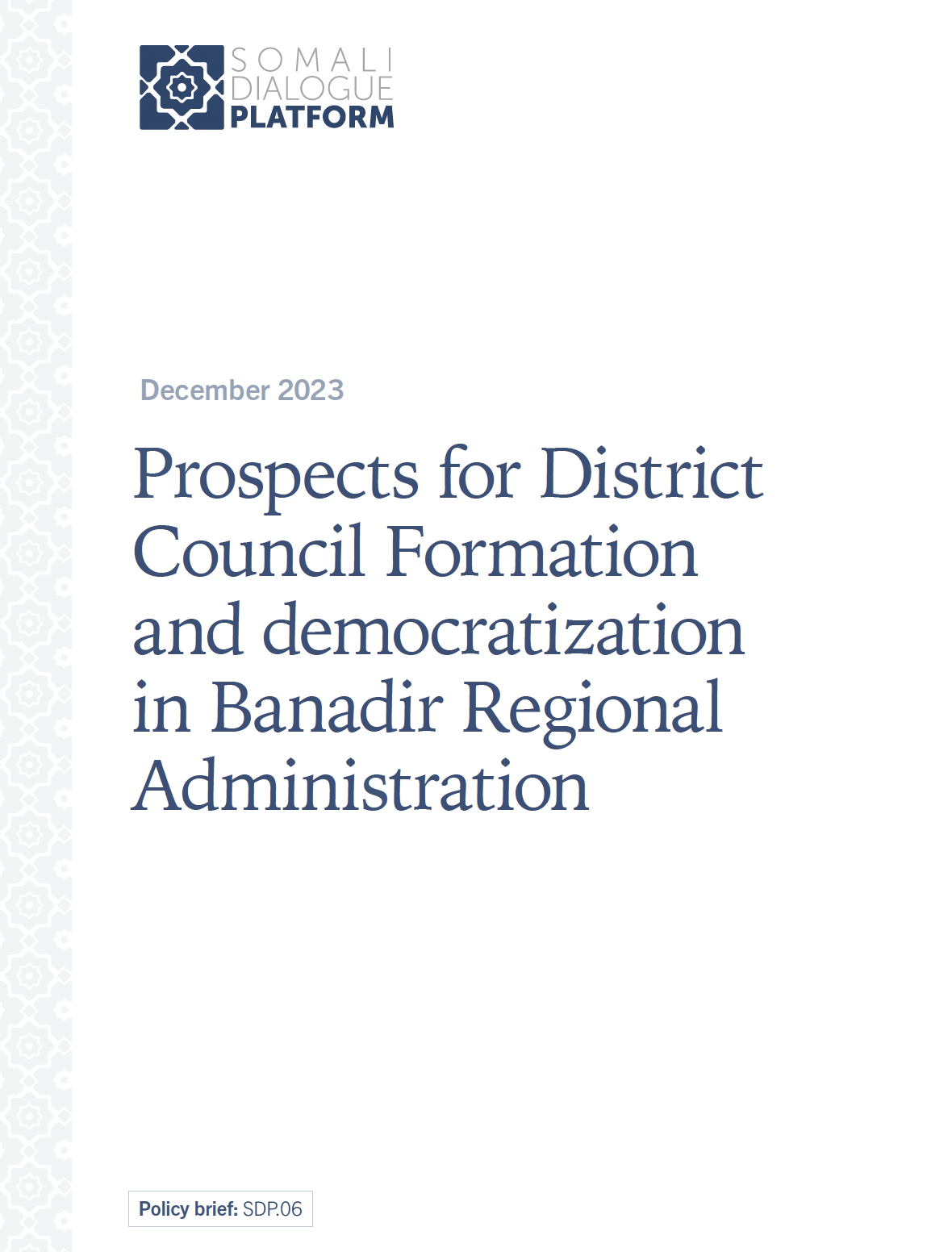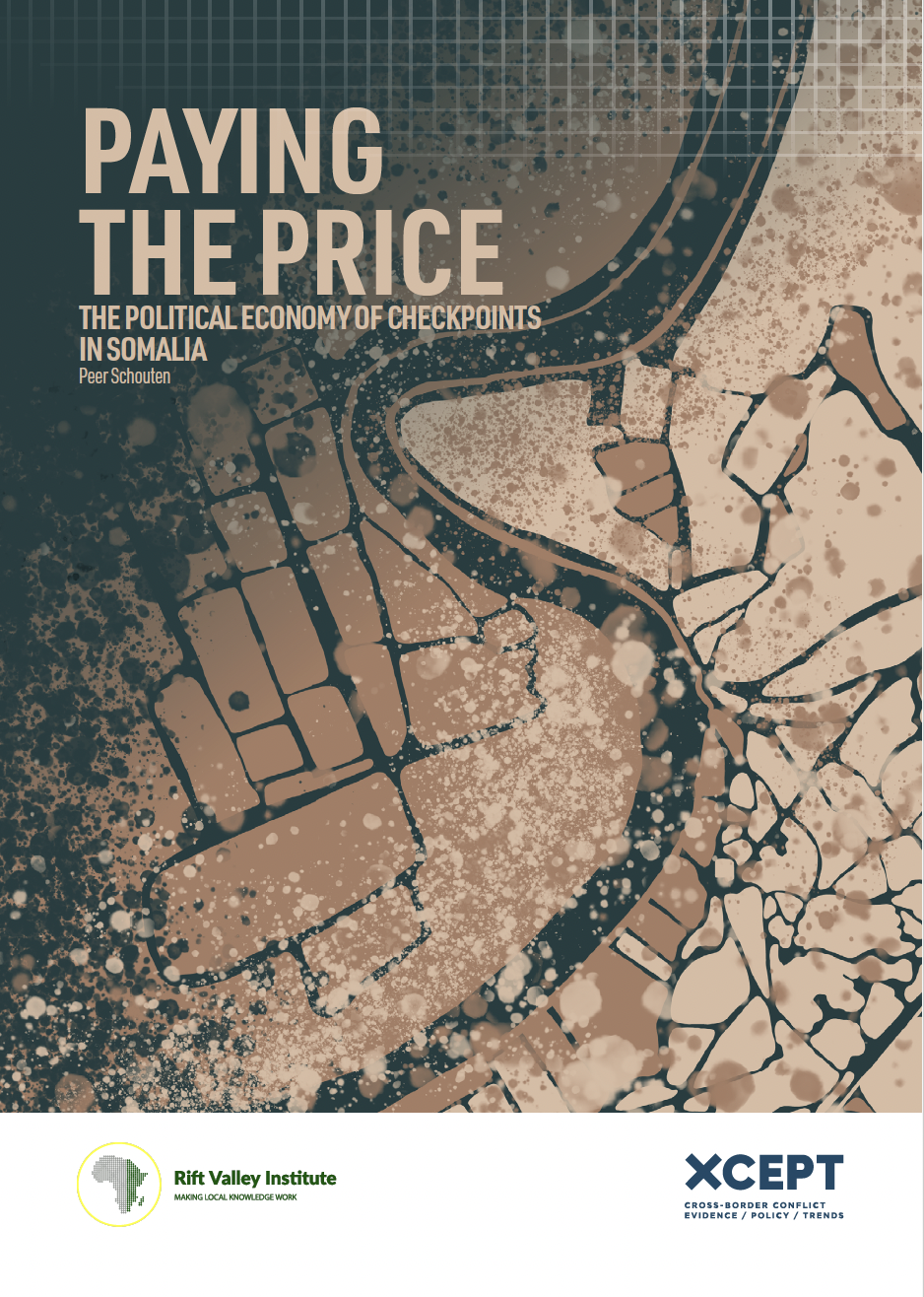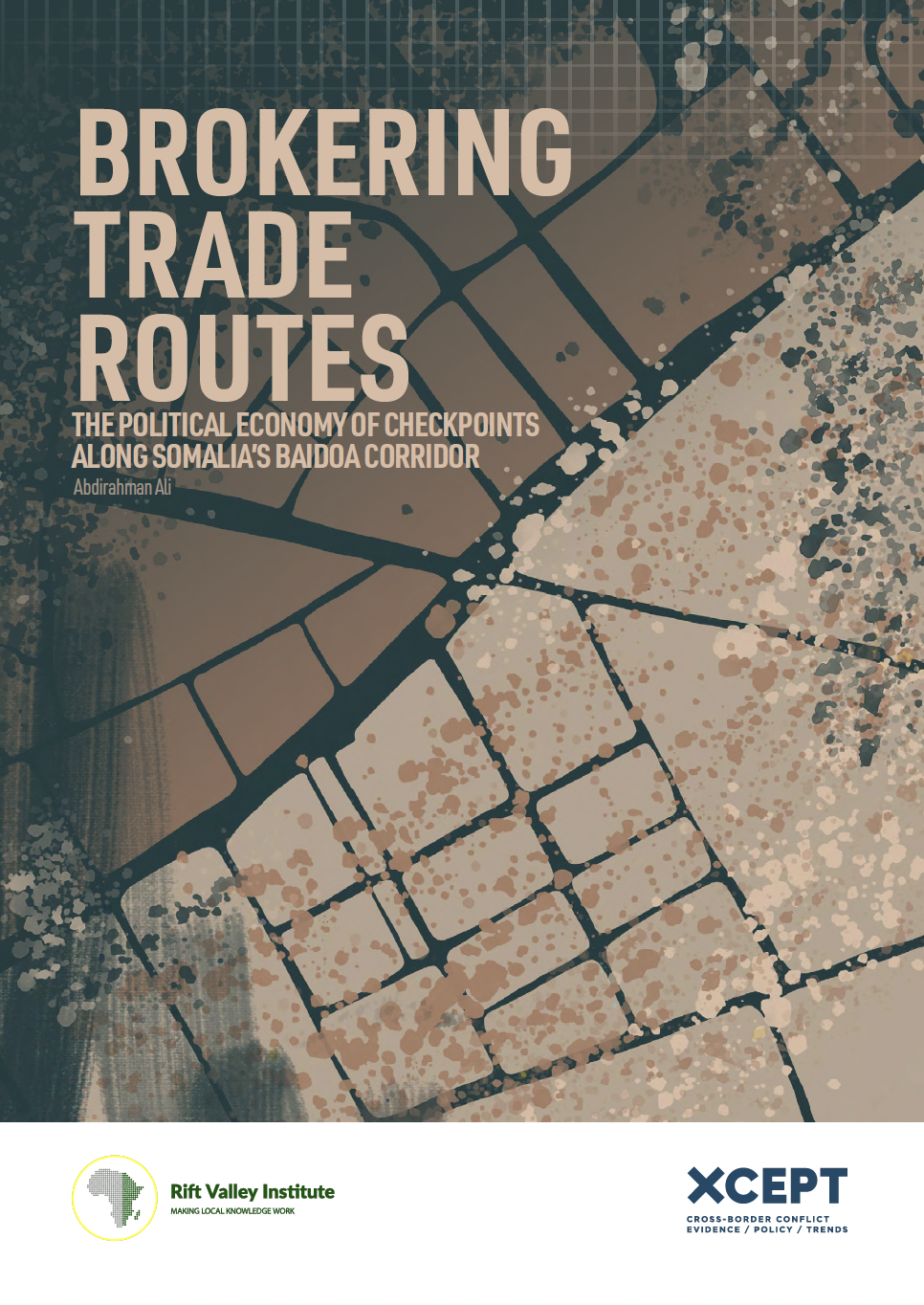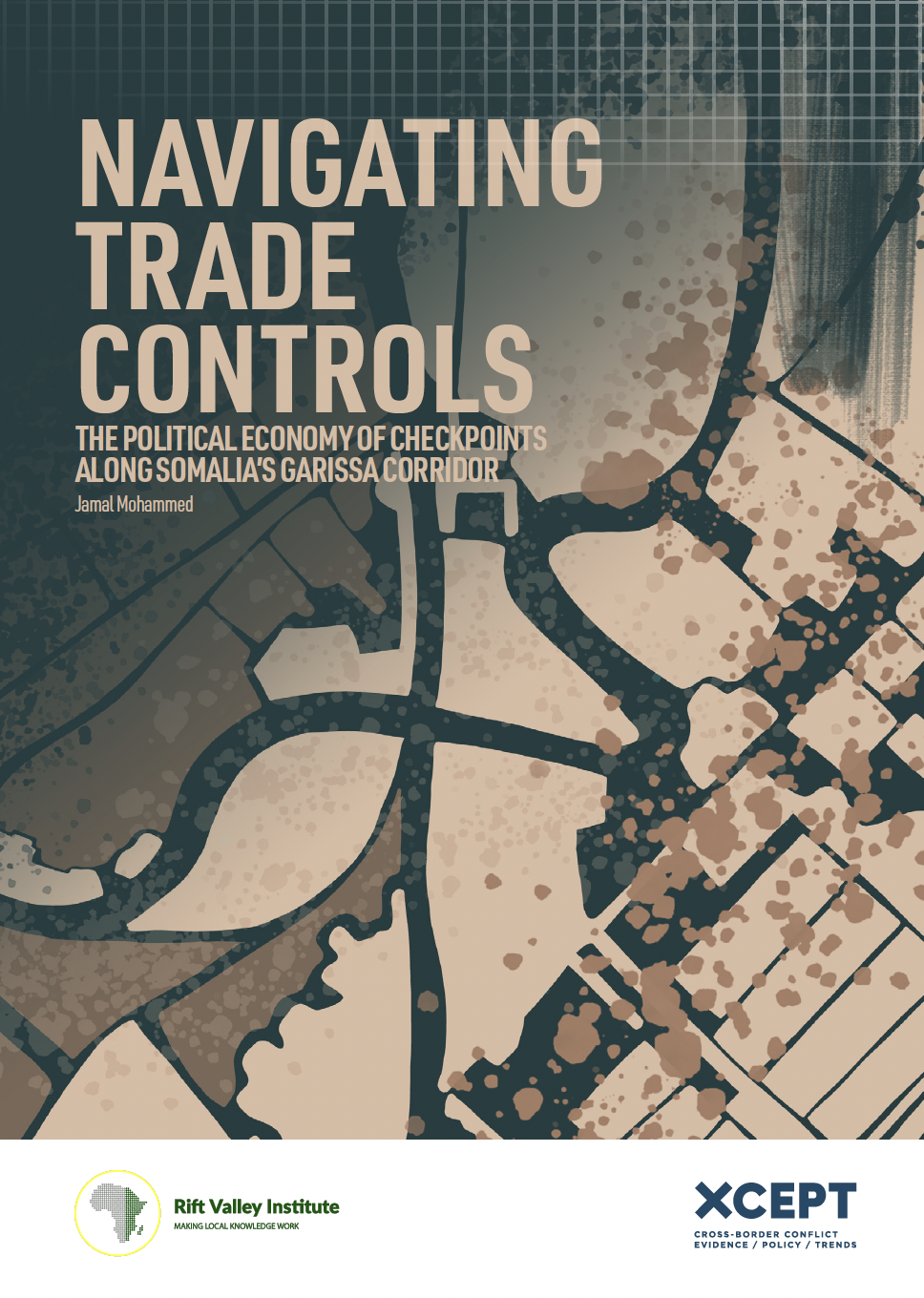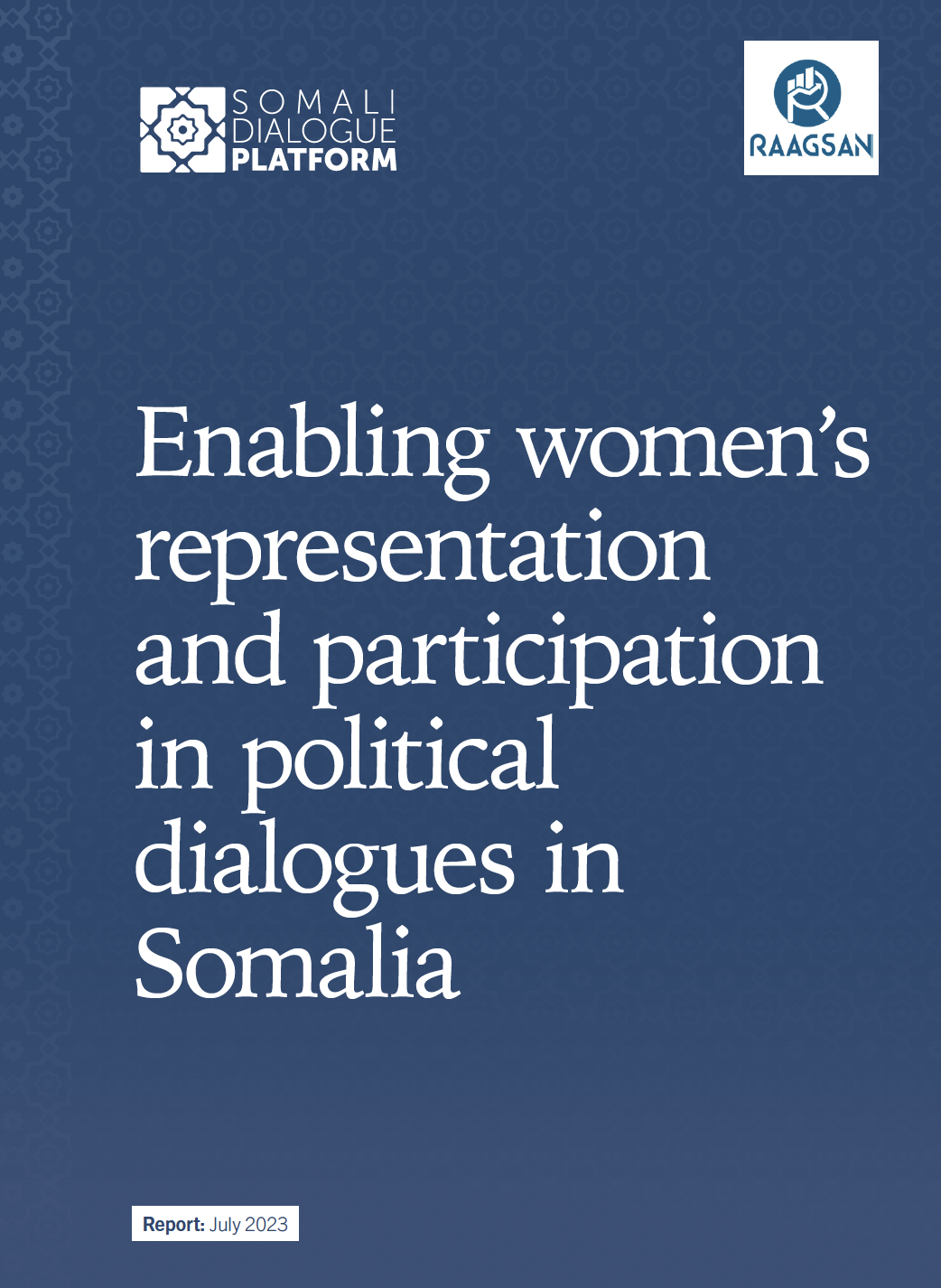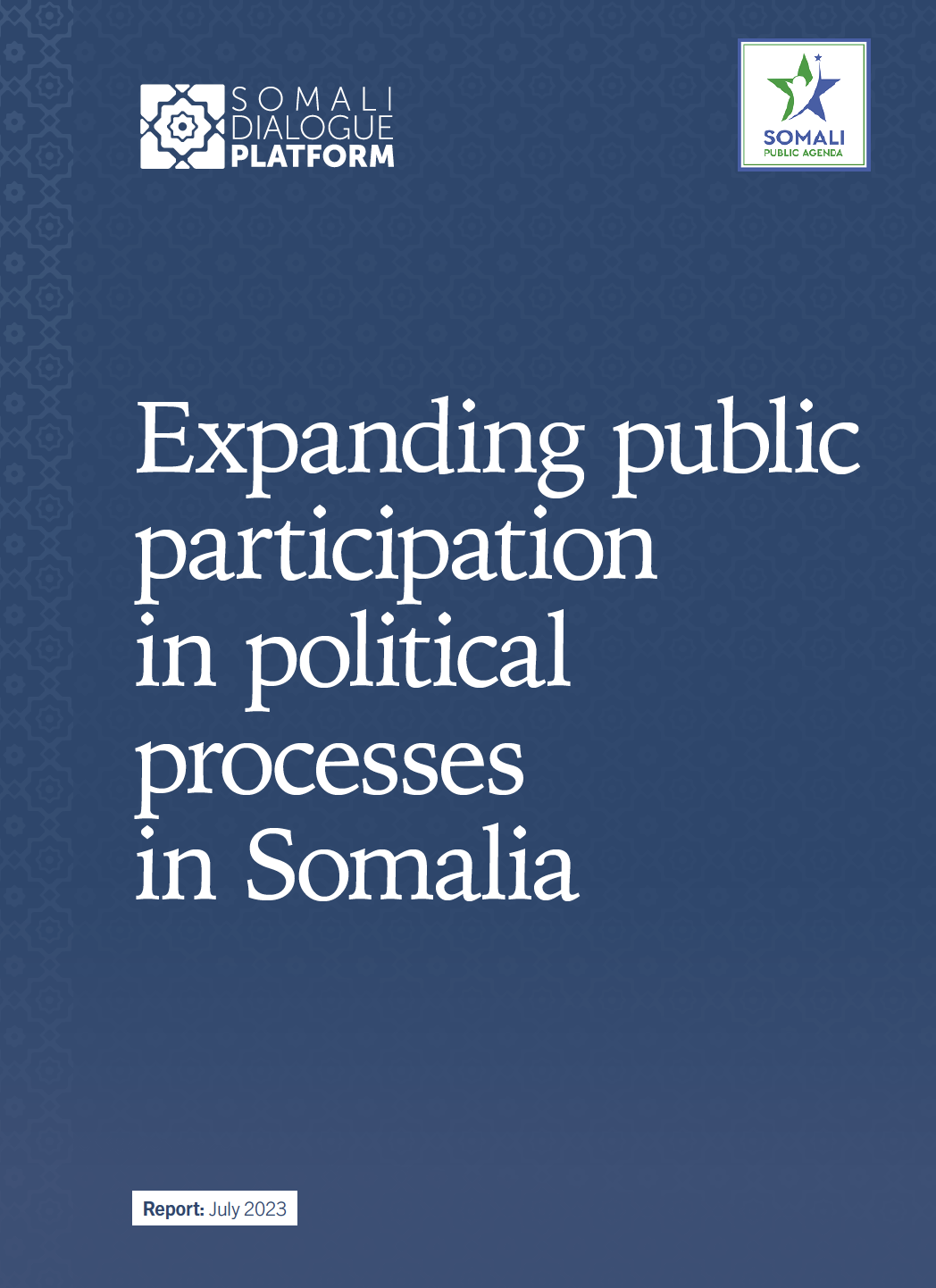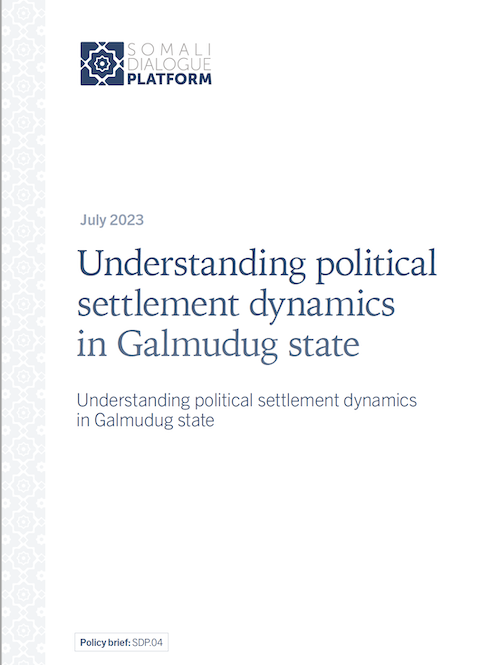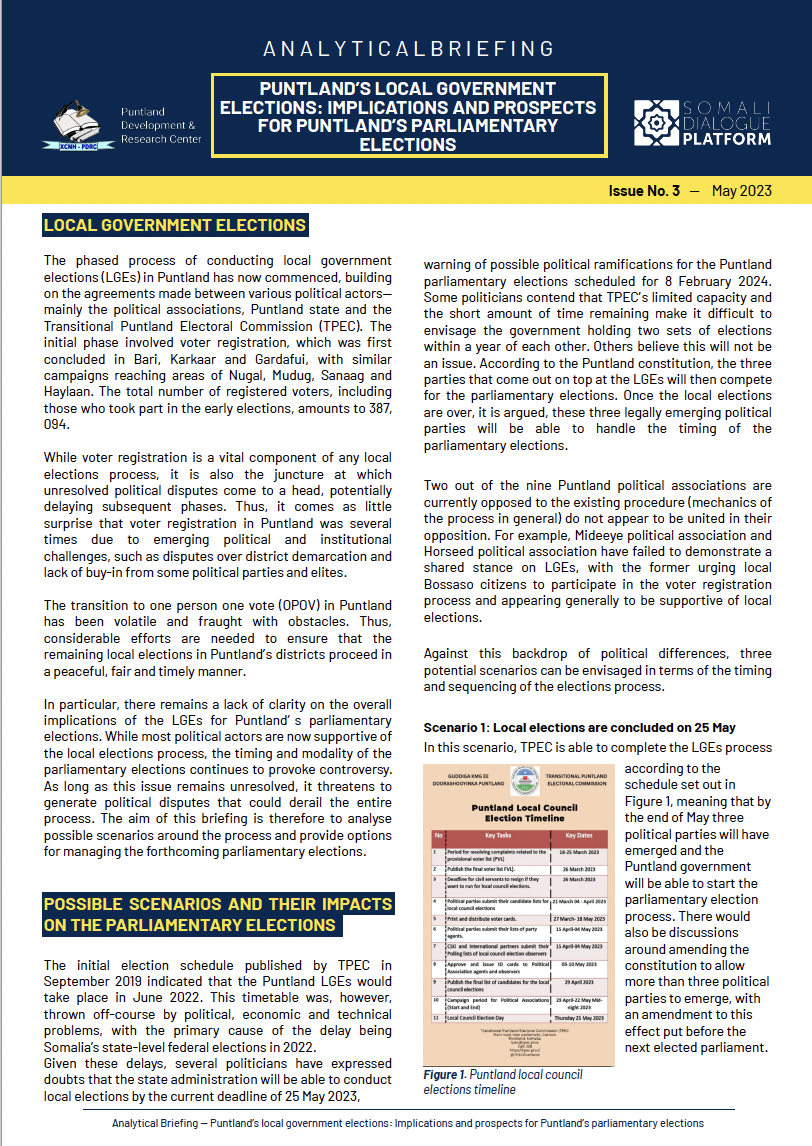On 24 January, Somalia’s Federal Parliament approved the ‘Adoption Procedure for Constitutional Amendment’ in a joint session of the House of the People and the Upper House. The five-page procedure consists of eight articles. Articles three, four, and five…
RVI publishes books, research reports, research papers, briefings and meeting reports in a range of formats. Publications cover policy, research, arts, culture and local knowledge in the countries of eastern and central Africa. Research publications—books, reports and papers—are peer-reviewed. Some RVI publications are also available in French and/or Arabic.
The RVI is a signatory of the Budapest Open Access Initiative (2001); all publications are free for download in PDF format under Creative Commons licences. The views expressed in books and reports published by the RVI are those of the authors, not the Institute.
SEARCH
PUBLICATION TYPE
LANGUAGE
REGION
COUNTRY
Summary Find the Somali version of this briefing here. …
SUMMARY This report explores the political economy of checkpoints in Somalia: What drives their formation? What impacts do they have on trade, society and political projects? To explore these factors, new empirical data is presented on the distribution and…
THE POLITICAL ECONOMY OF CHECKPOINTS ALONG THE BAIDOA CORRIDOR SUMMARY • The Baidoa corridor is a transport and trade route that connects Somalia’s coastal capital, Mogadishu, to Kenya via the border towns of Bula Hawa and Dollow, respectively. As…
THE POLITICAL ECONOMY OF CHECKPOINTS ALONG SOMALIA’S GARISSA CORRIDOR SUMMARY • The Garissa corridor is an essential artery for trade and exchange between Kismayo in Somalia’s Jubaland state, and the Kenyan city of Garissa. Checkpoints along this route were…
Introduction One of the most significant recent developments in the prolonged struggle against al-Shabaab in Somalia has been the success of military operations led by the Somali National Armed Forces and allied self-defence militias known as Ma’awisley. Ma’awisley—named after the…
SUMMARY Somalia grapples with unique cultural, societal, and structural hurdles that hinder women’s access to political processes. Despite introducing a non-legally binding quota, the most recent federal elections in 2022 saw a decline in women’s parliamentary representation. Beyond this,…
Summary In recent history, political processes in Somalia have been dominated by a narrow set of political and business elites, armed actors and external players. Following the collapse of the government in 1991, there were a series of conferences…
Introduction Galmudug state in Somalia was, until recently, seen as a region of conflict and fragmentation, shaped by the legacy of violence passed down from the Somali civil war. Due to the constant conflict between clan-based political groupings, it…
LOCAL GOVERNMENT ELECTIONS The phased process of conducting local government elections (LGEs) in Puntland has now commenced, building on the agreements made between various political actors— mainly the political associations, Puntland state and the Transitional Puntland Electoral Commission (TPEC)….
Recent Publications

Political Economy of Cash and Markets in Sudan
February 27, 2026
The research provides a snapshot of the war in Sudan in the period from February to April 2025. However, the war is dynamic, with political alliances and territorial control changing. The April 2023 conflict between the Sudan Armed Forces (SAF)

Rethinking Ethiopia II: Youth and politics
February 26, 2026
Seminar report Rethinking Ethiopia, a collaborative essay competition initiative between Addis Ababa University’s Institute for Peace and Security Studies (IPSS) and the Rift Valley Institute’s (RVI) Peace Research Facility (PRF), offers a platform for Ethiopian youth to express their ideas

2025 Year in Review
February 16, 2026
The 2025 Year in Review provides an overview of the Rift Valley Institute’s work over the past year across eastern and central Africa. The report highlights RVI’s research and publication outputs, education and training activities, and public forums and convenings,

